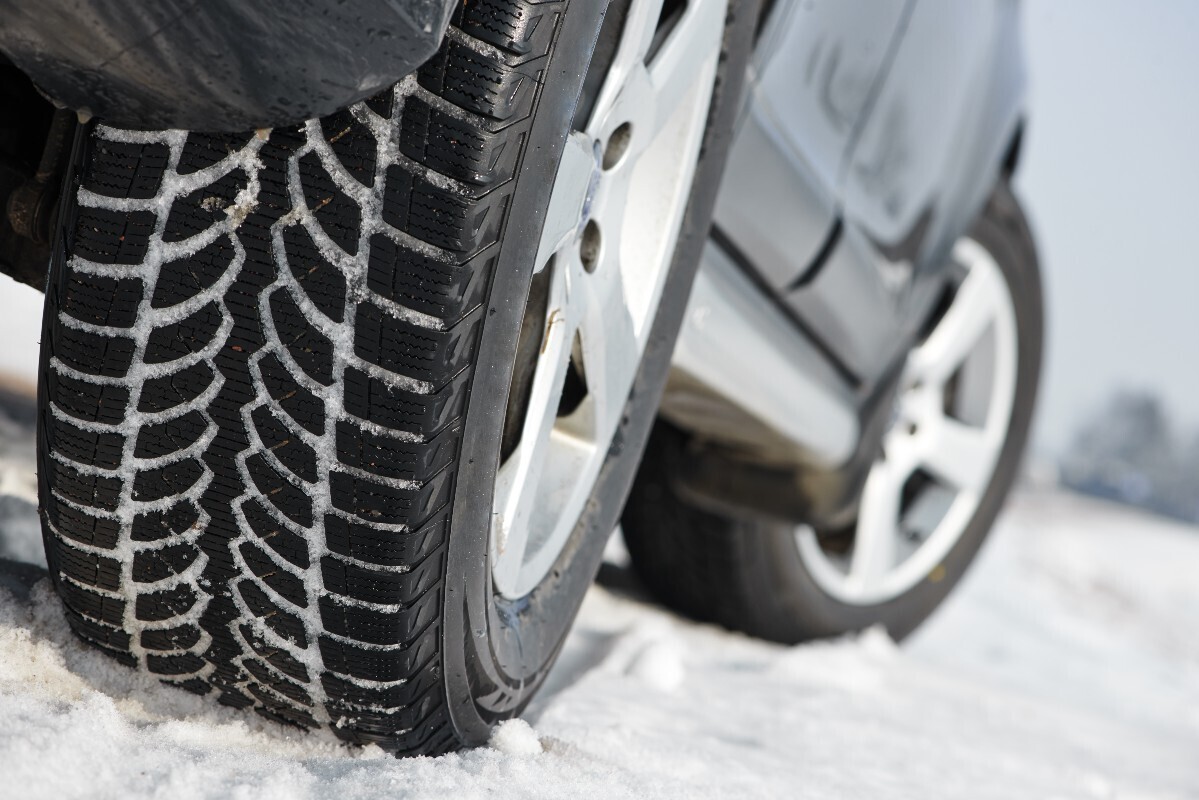
While standard car tyres function well in normal weather conditions, during heavy rain, icy winters and snowfall, drivers regularly find that even 4x4 vehicles struggle to maintain a grip or are unsuitable when travelling into Europe or navigating uneven terrain. Most new vehicles shipped from the manufacturer are fitted with summer tyres, providing generally good performance with a reasonable price point.
A YouGov poll shows that 88% of UK drivers never change their tyres, often due to a lack of understanding about the safety considerations, even though manufacturers normally recommend summer tyres for less than eight months of the year.
In this overview, Porsche oem parts specialist Design 911 explains the benefits of all season tyres and how they differ from winter-specific tyres.
What Is an All-Season Tyre?
Tyres designed to work in all-weather are developed throughout Europe and engineered to meet the demands of moderate climates, with lighter winters and a high prevalence of rain – an ideal option for UK drivers, who are less likely to need snow chains or more rugged winter car tyres, away from the highest elevations or the far north of Scotland.
The purpose of an all-season tyre is to minimise the performance compromise drivers experience when driving during the summer months with winter tyres, which can affect aspects such as handling, traction and braking.
As a comprehensive solution, all-season tyres are intended to improve safety and confidence, without needing to be replaced twice per year, and function to high standards in all weather conditions.
In essence, an all-season tyre isn’t a specialist tyre you might require for much hotter, tropical climates or intensively cold countries, but it will exceed the performance of summer tyres on a winter road and winter tyres used in the summer.
The key advantage for drivers is their ability to retain the same tyres. However, a full winter tyre may be a better option if you intend to drive to parts of Europe, such as Scandinavia and the Balkans, where harsh winters are common.
How Does an All-Season Tyre Work?
This multi-purpose tyre features blocks which shed water quickly, minimising the potential to aquaplane in heavy rain or when melting ice makes roadways slippery and saturated. Sets of deeper, high-density grooves provide a superior bite during snow and ice and boost handling and braking speeds in wintery conditions.
A premium quality all-season tyre also tends to have a calibrated tread pattern to reduce noise and maintain an optimal level of road contact regardless of the road surface, making the driving experience more comfortable and smoother in the summer.
One of the primary issues with a summer tyre in the winter is that the tyre compound starts to harden and become less able to grip, exacerbating the risk of sliding, collisions and ineffective braking.
In contrast, an all-season tyre has a pliable, robust composition that remains adaptive to the road, which acts as an intermediate solution with the ability to grip warmer asphalt and tarmac without the potential to harden in the cold.
What Are the Benefits of All-Season Tyres in the UK?
The biggest positive of a set of all-season tyres is that they substantially reduce the possibility of accidents, sliding between lanes, and becoming stuck or stranded during periods of ice, sleet, hail, freezing fog and snow.
Black ice is one of the most dangerous conditions seen on UK roads and contributes to 20% of crashes, and where a cold snap hasn't been forecast, this can make driving with summer tyres hazardous.
Likewise, aquaplaning is far from unusual. Even in the south, torrential rain can make road surfaces treacherous and unsuitable for tyres which cannot maintain a solid grip, particularly when travelling at higher speeds on A roads and motorways.
Of the small proportion of motorists who switch their tyres before winter sets in, 47% are parents and drive with children in the car and take the time to change tyres on their vehicle to address safety concerns – although 17% live in Scotland, where snow and ice are expected.
Is There a Downside to Driving With All-Season Tyres?
Every tyre model has pros and cons, and although there isn’t any tyre that is 100% perfect for every vehicle, an all-season tyre is as close as it gets if you aren’t keen on purchasing two sets of tyres and changing them twice per year.
Tyre manufacturers focus on technical design aspects that improve elements of driving, such as:
- Tolerance to high and low temperatures
- Fuel economy
- Resistance to aquaplaning
- Durability
- Dry and wet grip
- Noise control
- Load-carrying capacity
Run-flat tyres are a popular choice and allow drivers to travel short distances following a puncture without losing control or experiencing a 'blow out'. However, just like all-season tyres, a run-flat tyre may affect some of the other performance characteristics.
All-season tyres are designed to provide the best of both worlds, extending performance and suited to most weather conditions all year round, replacing the cost of two sets of tyres for the same vehicle, although potentially with a slightly shorter lifespan.
Do I Need All-Season Tyres?
There are several considerations when picking the right tyres for your vehicle, and much depends on how often you drive, your car, where you live, and the types of journeys you undertake.
Some drivers also prefer to have summer and winter tyres since they would rather have the additional cost and time of swapping their tyres in return for a smoother driving experience and enhanced handling ability.
All-season tyres can also vary, and not all are created equal. For example, some leading brands produce excellent all-season tyres with fantastic grip and low noise, but which are less reliable in the snow. In contrast, others are excellent in wintery weather but create more noise when driving at higher speeds.
If you need assistance pinpointing the best tyres for your vehicle to suit your budget, performance expectations and driving style, an automotive professional can provide recommendations and ensure your tyres are up to the task.
Read more about Design911 - Design911 Implements EU Delivery Promise Amid Sector-Wide Delays and Supply Problems for Car Parts
About Design911
Design911 has established itself as the market leader, offering trade and retail customers a full range of OEM and aftermarket Porsche parts for general servicing and re-build as well as restoration and tuning for the UK, European and world-wide markets. The company’s impressive 34,000 sq. ft Essex headquarters comprise sales department, warehouse, workshop and body shop, as well as a showroom of classic Porsches for sale. We pride ourselves that we will be the company that can supply ‘every part for every Porsche’.
Original Source of the original story >> The Benefits of All Season Tyres v Winter Tyres







